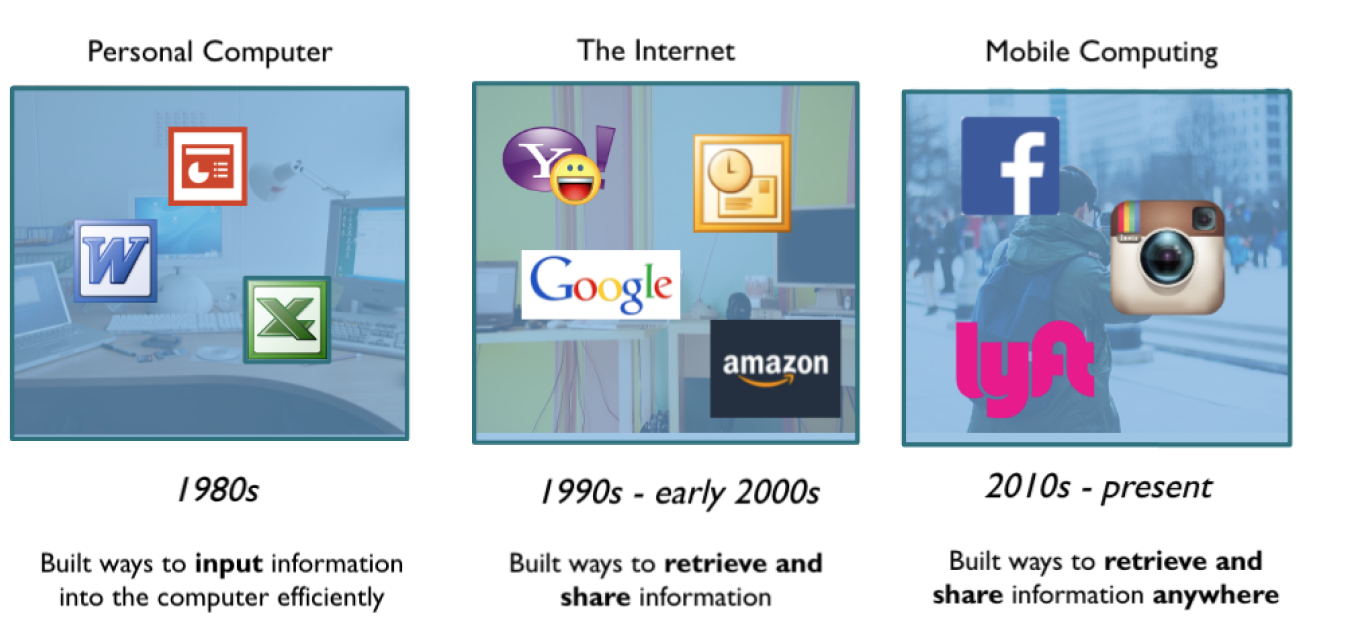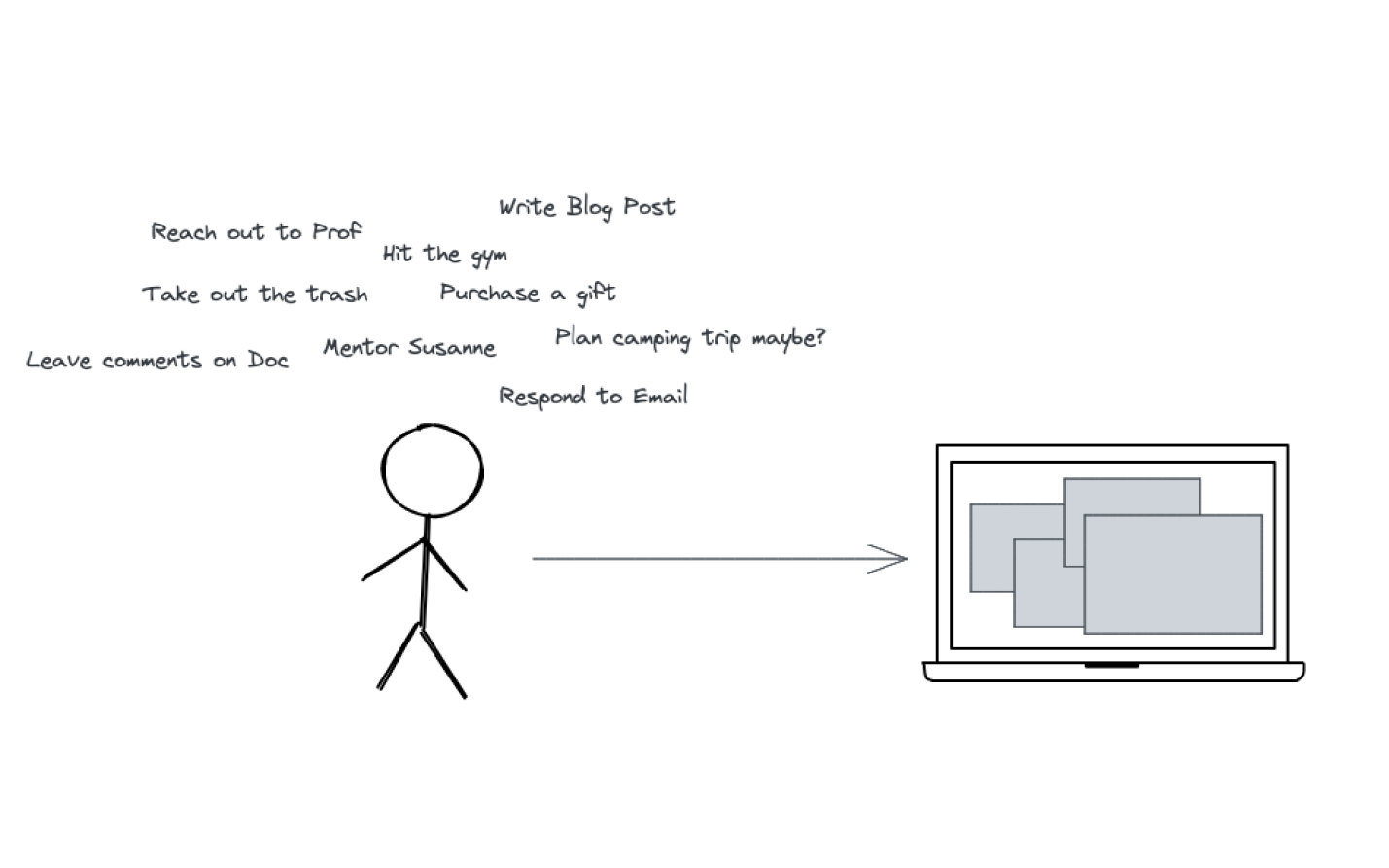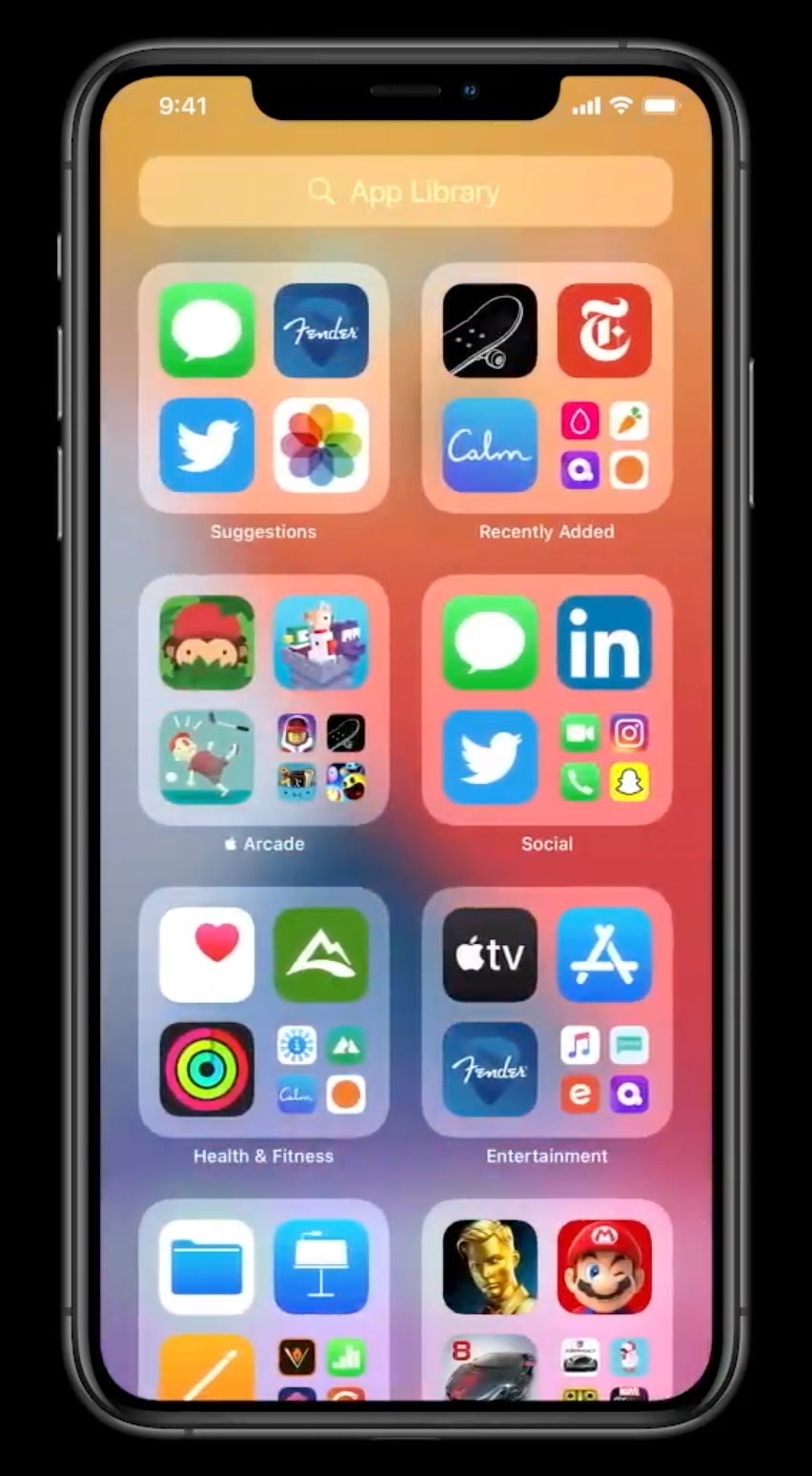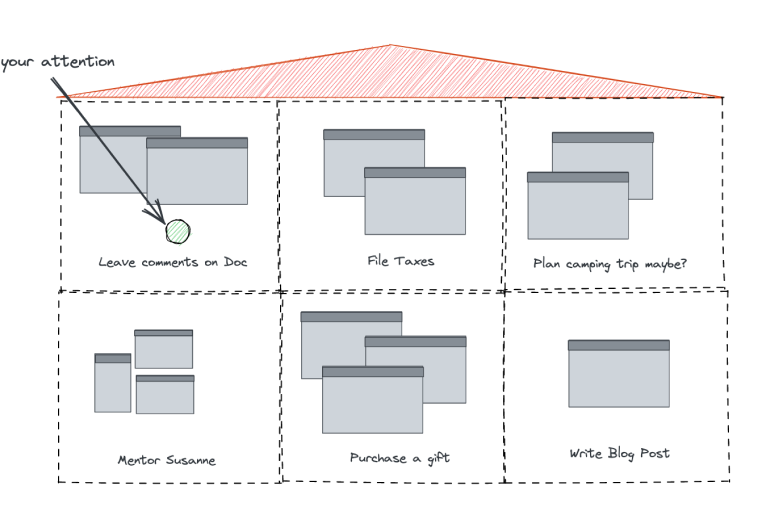I believe that we can detach from computers. That in a completely opposite spectrum, a world exists where we get our attention back, the internet isn’t run on ads, and AI gracefully does work for us.
I think it requires change. Not just a technology change, but a behavior change. While everyone thinks about the world today in apps, desktop, ads and files, documents. A new world exists centered around context, intention, fragments and services.
We think we know how to use a computer. Yet, after so many years, there is still no “right way” to get work done on a computer. There are no rules. There is no structure. That is why productivity is the wild-west.
And over the last 30 years, our consumer technology story has been mostly centered around information. It’s been about processing information faster, moving it from one place to another, and answering questions from anywhere.

paradigms and information interaction are related
And in this global information transition, we’ve had breakthroughs in access to information and how fast we can get it. We are truly, well… consumers.
But what happens when you have too much information? So much that you can’t handle it.
- I have way too many emails. Everyone needs me
- I have 500 tabs, but I can’t close them,
- I get a slack message, and that’s it, I drop everything to take care of it
- I don’t really know where a document lives
- I bookmark things, and then forget I bookmarked it
- I’m just all over the place, notes, online tools
- Who even has my data?
You get distracted, you feel overwhelmed, and you don’t feel in control. Your attention is gone. The world is broken because we haven’t fixed the way we consume information. I hear you Dr.Newport.
I don’t blame people, or the tools though. There are problems with the interfaces of yester-year that don’t scale to modern work.
Working in Apps
Things I want to say/build:
- Apps are made up of multiple contexts
- Apps as a construct aren’t enough, we need a layer of context
(incomplete and noisy thoughts below)
For everything that we work on today, we open a new window or a tab. We find the right app for the right job.
We do our work inside of apps, and close them out, and pick the next item to work on.

Getting things done on the computer
Sometimes, we might even reuse an app to do multiple things. For example, I use Gmail everyday, but for three separate things.
- Shipping Confirmation for Tom’s Gift
- Shippi
- SDSD
And the more things we have to do, the more apps and tabs we have open.
And if I told you to organize your apps, and your work, maybe you might organize them like this:

Grouping apps by categories
And that is the problem with our modern app
And I’ll draw this in a different, way. If this were a physical house, you have to run between each room as you ran through the different things in your mind.

The house of actions
But you can’t human All the walls in the house of actions are imaginary. All a computer sees are tabs, and windows. But in our heads, those set of tabs and windows have larger meaning. Context.
And
In our heads, we divide up these apps and . For example, I can use Gmail more than once in a day.
Everytime you need to run back into the room and re-orient yourself with what’s happening.
In the 80’s, sans internet, we lived in a document-centric world. Information was generated on our machines, and lived primarily on files. We now live in an app-centric world, information lives everywhere, and easily exchanged (as long as we all use the same app).
That really means that information can live in two places: files or apps. In your home, or in the cloud.
But an app
Information only lives in one of two places, either inside a file (a carry-over from the )
Whether it’s Gmail on your desktop, or TikTok on your phone, apps are these portals that connect us with information. If the internet was a highway, apps decide the freight that travels on it.
[Image of Apps and Cloud]
And today, a lot of our work happens inside of Apps. It’s almost
In the 80’s, sans internet, we lived in a document-centric world. Think local files and folders. T Information today lives in one of two places, inside an app, or inside a file. Our two digital constructs.
A lot of our work today happens in apps.
Draft Post
This post is draft mode. You will need to provide a password to read it.
